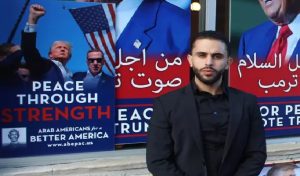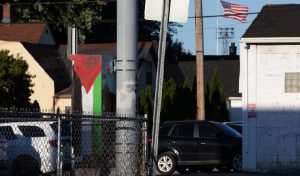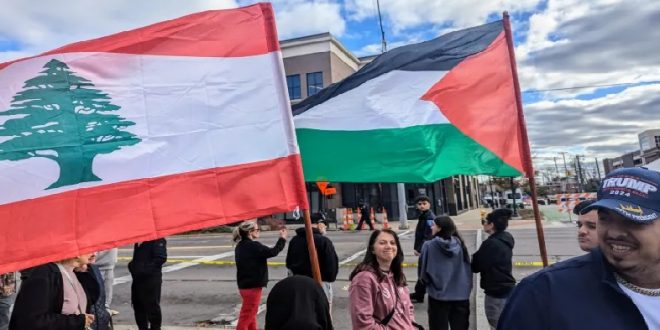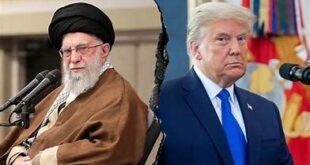05-11-2024
DEARBORN, MICHIGAN: For more than a year, Layla Elabed says she and other Arab Americans have been at a “collective funeral”.
“We’re grieving. We’re frustrated. We’re angry. We’re heartbroken. We feel betrayed,” Elabed said, finally taking a breath as she reflected on Israel’s raging wars on Gaza and Lebanon and now, with bombs still raining down, she added that Arab American voters were being asked to hit pause their sorrow and cast a ballot on Tuesday for presidential candidates who do not have a plan “to stop the killing”.
 It is a sentiment that reverberates across the large Arab American community in the battleground state of Michigan, where Elabed has been a leader in the Uncommitted Movement, which has aimed to pressure United States President Joe Biden and his vice president and Democratic contender, Kamala Harris, to end their unwavering support for Israel.
It is a sentiment that reverberates across the large Arab American community in the battleground state of Michigan, where Elabed has been a leader in the Uncommitted Movement, which has aimed to pressure United States President Joe Biden and his vice president and Democratic contender, Kamala Harris, to end their unwavering support for Israel.
Harris has promised to continue arming Israel while her Republican rival, Donald Trump, has a staunchly pro-Israel record despite his claims of wanting to bring “peace” to the region.
Draped in a scarf featuring Palestinian embroidery, known as “tatreez”, Elabed told media that she was leaving the top of the ticket blank.
“I’m skipping it because neither Vice President Harris nor Donald Trump has adopted a policy that clearly says the bombs are going to stop,” said the Detroit area resident, who is a mother of three and the 12th of 14 children of Palestinian immigrants.
Other Arab Americans, however, are making different choices.
Some are backing Harris, arguing that despite her pledge to sustain the flow of US weapons to Israel, the Democrat remains a better choice than Trump on domestic and foreign policy.
Others see Trump’s unpredictability and self-proclaimed status as an antiwar candidate as an opportunity to break away from the Democratic Party and penalize Harris.
Elabed belongs to the third camp: those who argue that neither candidate deserves the community’s votes but even within that approach, there are divisions. Some are calling for skipping the presidential race altogether, while others are campaigning for Green Party candidate Jill Stein.
 Overall, however, there seems to be little enthusiasm across the board, underscoring the dilemma Arab Americans face as they struggle to agree on a strategy that could help influence the election and end the US-backed Israeli wars, which have so far killed more than 43,000 people in Gaza and nearly 3,000 in Lebanon.
Overall, however, there seems to be little enthusiasm across the board, underscoring the dilemma Arab Americans face as they struggle to agree on a strategy that could help influence the election and end the US-backed Israeli wars, which have so far killed more than 43,000 people in Gaza and nearly 3,000 in Lebanon.
Alissa Hakim, a Lebanese American university graduate, said she has “no hope whatsoever” about the vote.
Hakim in 2020 cast her first-ever vote in a presidential election, voting for Biden who she believed would be better than Trump but after four years and a war that many experts have described as a genocide, the 22-year-old said she firmly rejected the “lesser of two evils” argument.
“There’s been such a low bar for our presidential candidates that you want us to vote for you just because you’re not the other person,” said Hakim, sitting in a Yemeni coffee shop with a laptop featuring stickers of the map of historic Palestine.
“It’s made me realize, we need to respect ourselves more than to just sell our vote to whoever says the nicer words,” she told media while Hakim remains undecided, she said her vote would certainly not go for either Trump or Harris.
In Dearborn, a city of 110,000 people known as the Capital of Arab America, both major campaigns are trying to reach out in various ways but their efforts do not appear to be producing a decisive outcome. (Int’l News Desk)
 Pressmediaofindia
Pressmediaofindia




